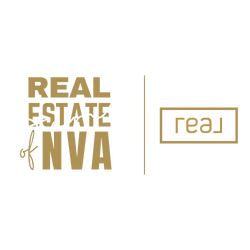Getting an offer accepted on a home can feel like a huge relief, especially if you’ve been in the market for a while. After you and the seller sign the purchase agreement, it’s time for you to make your earnest money deposit.
The earnest money deposit is usually the first payment home buyers make, so it feels like a big step. Before making an offer on a home, you should understand what earnest money is, where it goes, and what you can do to protect your funds.

What Is Earnest Money?
Earnest money, also known as good faith money, is a deposit you pay when your offer on a home is accepted. Buyers usually make their earnest money payment when they sign the purchase agreement. If you back out of the deal for reasons not covered in the contract, the seller gets to keep the deposit.
When a seller accepts your offer, they take their home off the market and stop collecting other bids. Therefore, they’ll want to know that you’re serious about the sale. If you back out, the seller can lose weeks or even months of time. Making an earnest money deposit demonstrates to the seller that you’re committed to the sale and you intend to follow through.
Where Does Earnest Money Go?
Earnest money does not go directly into the seller’s pocket. Instead, it’s put in an escrow account managed by a third party. Buyers commonly pay their earnest money to the title company or attorney facilitating the sale.
If you break the contract and back out of the sale, the earnest money will go to the seller as compensation for their lost time. If you exit the deal for a reason covered in your contract, your earnest money will be returned to you. If you close on the home, the earnest money will be applied to your down payment.

How Much Should I Deposit?
Buyers typically pay 1% to 2% of the home’s purchase price in earnest money. In hot markets, buyers may offer as much as 10%. You could also offer a fixed amount, like $3,000 or $5,000, instead of a percentage.
Earnest money is not required by law, but most buyers offer earnest money to make their bids more competitive. Sellers may request a specific percentage or dollar amount of earnest money, too.
Deciding how much to pay in earnest money can be tricky. You want to make an appealing offer, but you don’t want to risk losing too much money if you have to exit the deal. If you’re not sure how much to offer, consult with your real estate agent.

When Is Earnest Money Refundable?
Your earnest money will be refunded if the seller backs out of the deal. There are also certain cases where you can receive your earnest money back when you exit the sale. However, these situations must be included in your purchase agreement.
The following are some of the most common contingencies that allow you to exit the agreement and get your money back:
Home Inspection Contingency: An inspection contingency allows you to back out if the home inspection reveals serious and costly problems with the property. Your contract should include a specific timeline for you to get the inspection and decide whether to move forward.
Appraisal Contingency: If the house appraises for less than the purchase price, your mortgage lender will not approve your home loan because they won’t be able to recoup their losses in the event of a foreclosure. An appraisal contingency lets you renegotiate or walk away altogether if the appraisal is low.
Financing Contingency: Although you should have a mortgage pre-approval before making an offer, this doesn’t guarantee your financing. The financing contingency protects you by allowing you to exit the deal if you can’t get a home loan.
When Is Earnest Money Not Refundable?
While there are several situations where your earnest money will be returned to you, there are also plenty of ways you can lose your earnest money deposit. Here are some of the most common scenarios in which you could forfeit your earnest money:
- You miss important deadlines that were included in the purchase agreement.
- You backed out of the sale and the contract didn’t include any contingencies.
- You had a change of heart about the house and decided to back out of the sale.
- You found another home you liked more and withdrew your offer.
- You and the seller agreed to a non-refundable earnest money deposit.
How Do I Avoid Losing My Earnest Money Deposit?
Losing your earnest money deposit can be incredibly frustrating. You’ve worked hard to save up for a house, and forfeiting an earnest money payment can set you back significantly. Follow these suggestions to reduce the risk of losing your earnest money:
Only make an offer when you’re certain
If you’re on the fence about a house, you might be tempted to make an offer just to see what happens. However, if the seller accepts the bid, your purchase offer becomes a legally binding contract. You should only proceed with an offer if you’re absolutely certain that you want the house.
Make one offer at a time
Buyers sometimes want to make offers on multiple homes at once to maximize their chances of an offer getting accepted. This strategy can backfire, though. If more than one of your offers are accepted, you’re now locked into multiple contracts and will lose your earnest money on whichever contracts you back out of. To stay in the clear, make offers one at a time.
Include contingencies
Contingencies protect you when there are circumstances outside of your control, such as a bad home inspection or a low appraisal. Waiving these contingencies is risky and should only be done after careful consideration and discussion with your real estate agent.
Put all terms in writing
An agreement is only legally binding if it’s in writing. Be sure that any terms you and the seller agree to are included in the contract. The more details in your purchase agreement, the better.
Review your contract with your agent
Before your agent sends your offer to the listing agent, they should send it to you for review. Read through it carefully and make sure you understand all the terms. If you feel like something is missing or doesn’t make sense, consult with your agent. Reading the purchase agreement can be tedious, but it’s a necessary step to protect yourself and your money.
Paying earnest money is an exciting yet stressful step in the home buying process. When you make the deposit, the sale starts to feel real. However, you also face a big loss if you back out. To reduce the risk of losing your earnest money, you and your agent should work closely together to ensure you’re fully committed to the sale and have a sound and solid purchase agreement.




